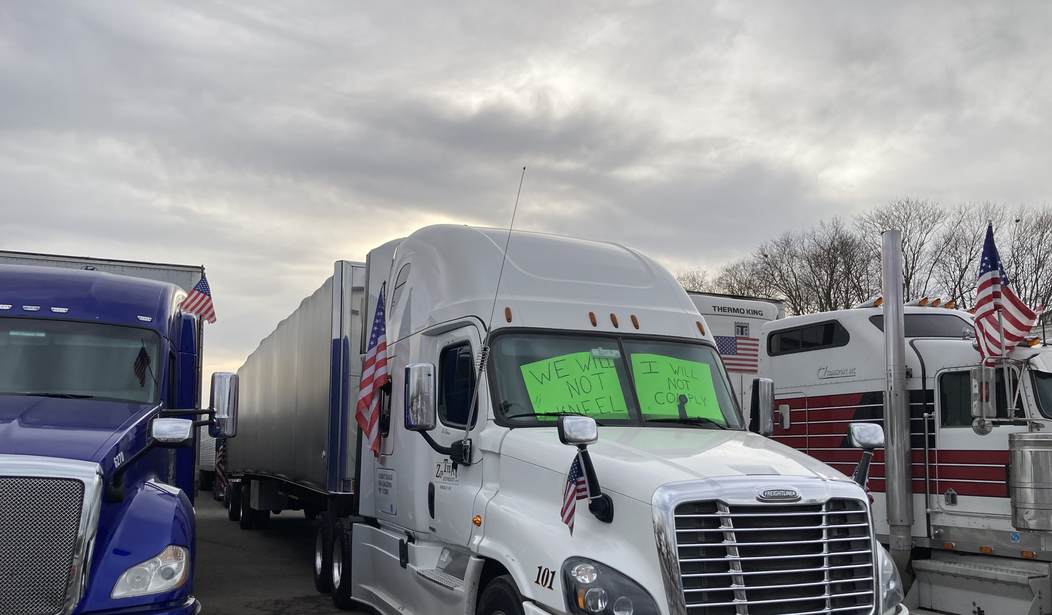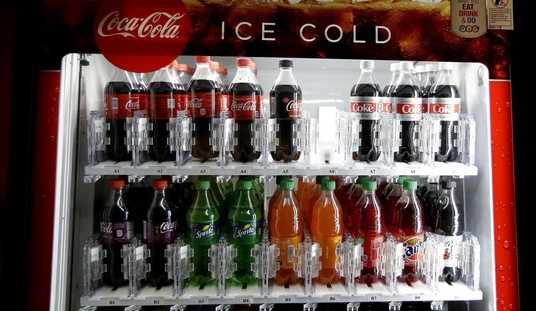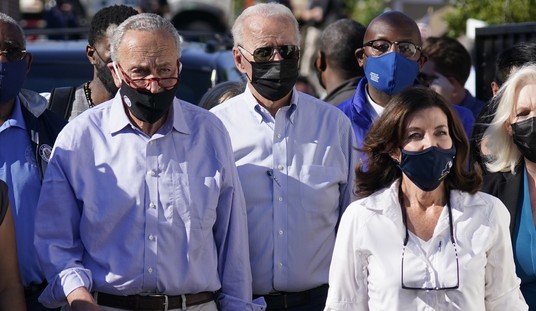As RedState reported on Wednesday, California Congressman Kevin Kiley did a joint press conference with Assembly Republicans, business organizations, and independent professionals affected by AB5 to oppose President Joe Biden’s nomination of Julie Su for U.S. Secretary of Labor. While not a part of Congressman Kiley’s press conference, on March 3, the Owner-Operator Independent Drivers Association (OOIDA) submitted a letter to the Senate Committee on Health, Education, Labor & Pensions (HELP) asking them to reject Su’s nomination. Su’s implementation of AB5 did, and continues to do, tremendous harm to the trucking industry in the state of California. No one wants to see this same damage spread nationwide, and OOIDA is trying to cut it off at the pass.
Truckers and their mode of operations represent a last bastion of independent entrepreneurship in our country. Our food supply and other commerce chains depend upon the work that they do. But Big Labor only sees dollar signs and flagging membership. While certain segments of trucking are unionized, the owner-operator model of motor carriers has resisted this, because you make a whole lot more money, have a greater degree of flexibility, and can negotiate higher pay rates if you are your own boss. In my own interviews with California truckers for a piece I did for another outlet, many of these owner-operators are multigenerational, passed on from parents to children, and their families have been in California for decades. The life is akin to ranchers, farmers, and other agricultural businesses in the state. The ownership investment and independence are the main draws. It’s just that simple. It is government that has made it complicated.
What AB5 did in California is destroy this model. Despite numerous court challenges to exempt themselves from this ridiculous and work-killing law, in June 2022, the U.S. Supreme Court declined to review the California truckers’ last challenge, so they became subject to the restrictions imposed by the law. The result? Some truckers have left the industry, and others are moving their operations out of the state.
Just as Congressman Kiley has been doing in his speeches, letters, and advocacy, OOIDA CEO Todd Spencer’s letter to the HELP Committee points out the failure, malfeasance, and outright destructiveness that ensued when Julie Su, as California’s Labor and Workforce Development Secretary, implemented and enforced AB5. OOIDA is vowing, never again.
The Owner-Operator Independent Drivers Association represents 150,000 owner-operators leased to motor carriers, small-business motor carriers with their own operating authority, and employee truck drivers. We oppose Ms. Julie Su’s nomination to lead the Department of Labor and the Senate Committee on Health, Education, Labor, & Pensions must reject her nomination in order to protect the livelihoods and careers of the hard-working truckers we represent. Her record as California Labor Commissioner and Secretary for the California Labor and Workforce Development Agency, including her support for AB5 and overseeing its disastrous implementation, demonstrates she would pursue policies that threaten our members’ ability to use a business model they have properly and beneficially used for decades.
Spencer further said of AB5,
This is the most disruptive worker classification policy to be enacted anywhere at the state or federal level.
And all California independent professionals, freelancers, and self-employed say, “Can I get an Amen?!” Spencer pulls no punches on his disdain for Su’s lack of knowledge and lack of competence.
When asked about AB5 in an interview, Ms. Su responded that it was meant to address misclassification that has “resulted in the day labor-ization of our economy.” She continued, “Instead of the steady, consistent, reliable work, people end up basically in odd jobs and you’re hustling all the time, right? So AB 5 is meant to address that kind of misclassification so that we can bring more people who should be under the protection of our labor laws back on that floor.”
These comments demonstrate either an ignorance of the owner-operator model in trucking or an overly broad generalization of how different workers operate as independent contractors. For the tens of thousands of truckers who have enjoyed a successful career as an owner-operator, it would come as a surprise to learn that their business represents an “odd job” in need of fixing.
This has been the argument among independent professionals since before this law passed or had even been implemented. In its so-called push to help misclassified “workers,” AB5 employs a broad brush approach that swept in those of us who are independent by choice, are hustling because we like the hustle, and who did not need government intervention to negotiate what we wish to be paid and how we are paid. California lawmakers did not care that in its greedy efforts to control truckers and rideshare drivers, it was destroying an entire independent contractor model that not only facilitates the engines of the economy but, in many ways, drives it.
Make no mistake: Independent contractors have comprised a good portion of the 500,000 people who have done the California Adios over the past two years. This not only represents a loss of population, but a loss of business revenue, corporate taxes, and all the ancillary businesses that revolve around it. California Secretary of Workforce Su instituted this madness for the state. A Secretary of Labor Su would further spread this chaos nationwide, and OOIDA’s Spencer wants to let Senate Chairman Bernie Sanders and Ranking Member Bill Cassidy know that Su’s nomination should not be allowed to stand.
It has been frustrating enough for small-business truckers that the California legislature ignored their concerns when enacting AB5. But the implementation of the law has been just as, if not more, disappointing. For months after the law was enacted, OOIDA sought guidance about how the law would apply in the trucking industry and how small businesses and independent contractors could potentially comply. Despite our efforts, we were left with essentially no guidance before the law took effect. The law and its haphazard rollout has forced independent contractor truckers to leave the state of California, become an employee, attempt to reconfigure their business, operate under a cloud of uncertainty, or abandon the trucking profession altogether.
For these reasons, we are concerned that Ms. Su would continue to pursue an ideologically-motivated agenda towards worker classification that ignores the thousands of small-business truckers that depend on the ability to work as an independent contractor. Make no mistake, if Ms. Su were to advance the same policies that she championed in California, it would force hundreds of thousands of truckers to change their business model and put their livelihood in jeopardy.
Spencer points out that despite offering to help California and national lawmakers understand how the independent contractor model works for the trucking industry, there continues to be a push to enact one-size-fits-all solutions that only erode and undermine a model that works not just for one industry, but for independent contractors and professionals across the United States. However, he concludes by extending the olive branch of goodwill once again, while warning that a confirmation of Julie Su would only hamper—not help—any forward progress.
We stand ready to work with Senators to address misclassification and improve working conditions in the trucking industry. But we believe that Ms. Su’s confirmation would make it extremely difficult to fix these issues in a way that benefits America’s truckers.
Or America’s independent professionals, freelancers, and self-employed. Julie Su’s nomination should and must be opposed.














Join the conversation as a VIP Member